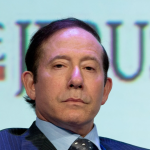
Analysis by Mission Control Reveals Starmer’s Prominence in January’s Political Broadcasts
Mission Control’s exhaustive research has propelled Keir Starmer to the forefront of January’s political narrative in UK broadcast media, outshining Rishi Sunak across an extensive analysis of over 41,000 discussions. Starmer’s keynote at the beginning of January, which outlined his strategic direction and ambitions, was widely celebrated, diminishing the impact of Sunak’s attempts to sway focus by suggesting potential dates for the general election.
Sunak’s policies, particularly the controversial ‘stopping the boats’ initiative and the Rwanda policy referendum, have encountered significant opposition and critique from within, adversely affecting his representation in the media. In contrast, Starmer’s astute engagements and prioritisation of key national issues, such as the campaign against ‘Zombie Knives’, have markedly increased his media presence and engagement, as detailed by Be Broadcast’s Mission Control.
An in-depth probe by Be Broadcast’s Mission Control, the analytical division of Be Broadcast, has identified Keir Starmer as the leading figure in January’s broadcast media narrative, outpacing Rishi Sunak through a thorough investigation of over 41,000 discussions within the UK.
Starmer’s inaugural address of the year, where he delineated his vision and objectives, was met with extensive accolades, establishing a positive trajectory for his leadership. This surge of approval faced a slight hiccup when Sunak insinuated a potential general election towards the end of 2024, attempting to redirect the media’s attention away from Starmer’s favourable acclaim.
However, Sunak’s gambit to realign the media spotlight was less effective than anticipated. Starmer’s critique, condemning Sunak for ‘squatting’ in power, not only regained media attention but also accentuated the negative ramifications of Sunak’s strategy.
The report also delves into the challenges Sunak faced, particularly with the Rwanda policy and referendum, his strategy for the election, and the UK’s involvement in military actions in Yemen, as major points of dispute.
Sunak’s narrative in January was heavily influenced by his primary policy of ‘stopping the boats’ and the Rwanda policy referendum, which largely dominated his media portrayal. Internal criticisms, particularly from figures such as Sir Simon Clarke, led to a predominantly adverse depiction in the media.
The emphasis on ‘stopping the boats’ remained at the forefront of Sunak’s policy discussions in the media, with limited attention to other policy matters.
Simultaneously, Starmer endeavoured to shift the focus towards domestic issues, notably his initiative to ban ‘Zombie Knives’. Nonetheless, this emphasis was somewhat diluted by the political strategies of Sir Simon Clarke, illustrating the profound influence of internal party dynamics on the discourse of public policy.
Significant Takeaways from the Mission Control Analysis:
- Starmer’s Broadcast Voice Share: Keir Starmer’s share of broadcast voice witnessed a significant leap of 46% from December to January, signalling a notable increase in his engagement and visibility. However, he still falls short of Rishi Sunak’s overall share of voice, indicating Sunak’s broader media footprint.
- Media Corrections Impact Sunak: A media correction regarding Rishi Sunak’s declarations about addressing the migration backlog, which underwent rigorous scrutiny from various platforms, resulted in a one-point deduction for Sunak. This underscores the paramount importance of precision and reliability in the public statements of political figures.
- Focus on Leaders’ Personalities: The analysis underscores the leaders’ personalities as a critical aspect of debate, reflecting a broader discussion on leadership styles and public charisma in the contemporary political scenario.
The political discourse witnessed significant activity on UK regional radio platforms, with neither Starmer nor Sunak actively engaging in these discussions, missing an opportunity to directly connect with regional audiences.
The main media entities driving the narrative around the political leaders were identified as GB News, Times Radio, LBC London, and TalkTV, significantly shaping the media narrative and public perceptions of both leaders.
Throughout the month, Sunak was portrayed as a cautious and strategic figure, concentrating on navigating the complexities of his party and the broader national policy debates. Conversely, Starmer was depicted as analytical and proactive, especially in response to Sunak’s leadership and policy decisions, indicating an active strategic exchange between the opposition and the government.
The media frequently highlighted the perceived lack of charisma in both leaders, often drawing unfavourable comparisons to the more charismatic former Prime Ministers like Boris Johnson.
In December, a number of media corrections, mainly related to taxation policies, emphasized the focus on accuracy in political statements. Notably, Sunak faced corrections regarding claims about the resolution of the immigration backlog, highlighting the significance of credibility in policy declarations.
Sunak’s portrayal in the media often linked him negatively with previous Conservative leaders, whereas Starmer was more commonly associated positively or neutrally with his Shadow Cabinet members.
With the election approaching, the absence of clear policies from either party has resulted in limited policy-focused media coverage. Instead, the discussions have predominantly centred on the personalities of the leaders, leading to an analysis more influenced by character than policy due to the absence of comprehensive policy debates.
Josh Wheeler, the Founder of Be Broadcast, reflecting on the analysis, stated, “Broadcast media offers a distinctive channel to impact voters’ hearts and minds. While Starmer has emerged as the leader in January, it is crucial for both leaders to refine their strategies for public engagement. This analysis not only highlights Starmer’s effective presence in January but also signals the strategic recalibrations necessary for both parties to more effectively resonate with the electorate.”
This thorough analysis from Be Broadcast’s Mission Control underscores the dynamic interplay between political strategies and media narratives, providing critical insights into the evolving political landscape as the UK progresses towards a significant electoral event.
About Mission Control:
Be Broadcast’s Mission Control provides brands with indispensable insights into broadcast news, enhancing media engagement and strategic brand evolution.
By tracking broadcaster reactions and discussions about brands, it enables timely and informed responses to emerging crises. Mission Control also offers detailed monitoring of competitor brands and the media landscape, assisting in the formulation of data-driven strategies for success.
This tool not only monitors 223 UK broadcast outlets continuously but also converts broadcast data into actionable insights, acting as a strategic guide for brand achievement.
In this series, Mission Control evaluates the monthly performance of Rishi Sunak and Keir Starmer in the lead-up to the General Election.
Methodology:
- Proactive Peak Initiative (1 Point): Allocated for instances where an individual shows proactive leadership and influential engagement in particular scenarios.
- Positive Reactive Response (1 Point): Awarded for effective and positive reactions to external events or circumstances, highlighting adaptability and resilience.
- Volume of Engagement (1 Point): Based on the total number of mentions or engagements, reflecting the individual’s prominence in the discourse.
- Dominance in Share of Voice (1 Point): Recognised for achieving a significant portion of the overall conversation, indicating a strong presence and influence.
- Increment in Share of Voice (1 Point): Awarded for a 10% increase in share of voice compared to the previous month, denoting growing influence and engagement in the media landscape.
- Positive Sentiment Balance (Up to 2 Points): Earn up to two points for every five positive percentage points accumulated, indicative of a positive reception.
- Personality Impact (1 Point): Given for instances where an individual’s personality significantly shapes the narrative or public perception.
- Accuracy and Media Corrections (Deduct up to 1 Point): Points are deducted for media corrections issued, reflecting on the accuracy and reliability of an individual’s statements or actions.












